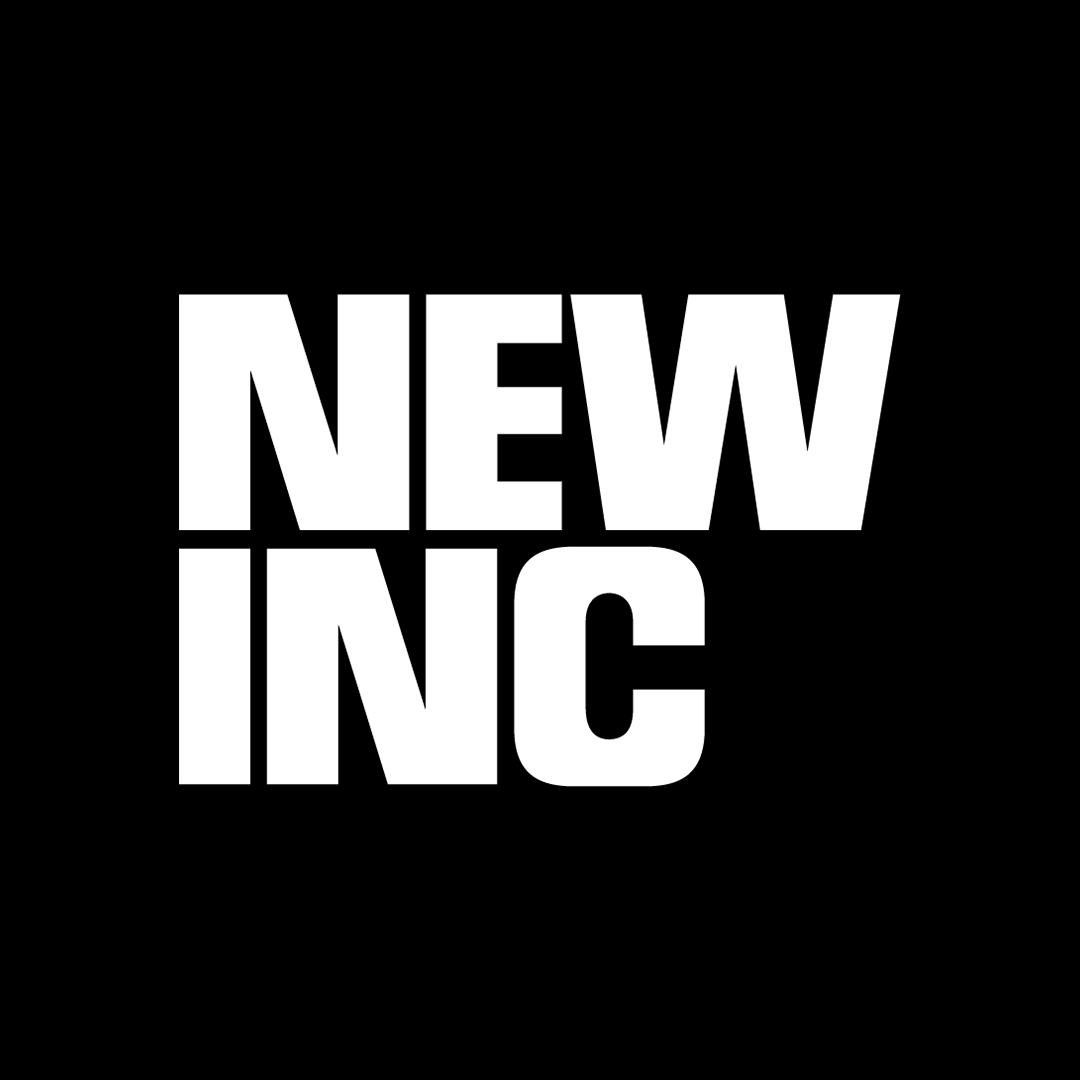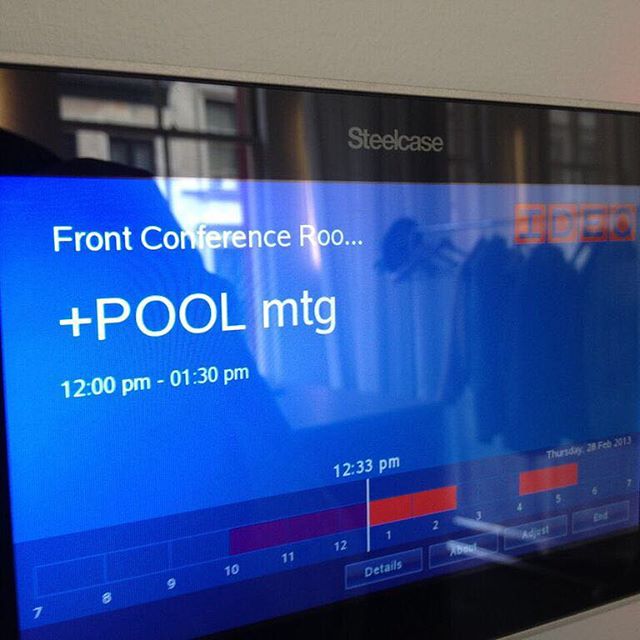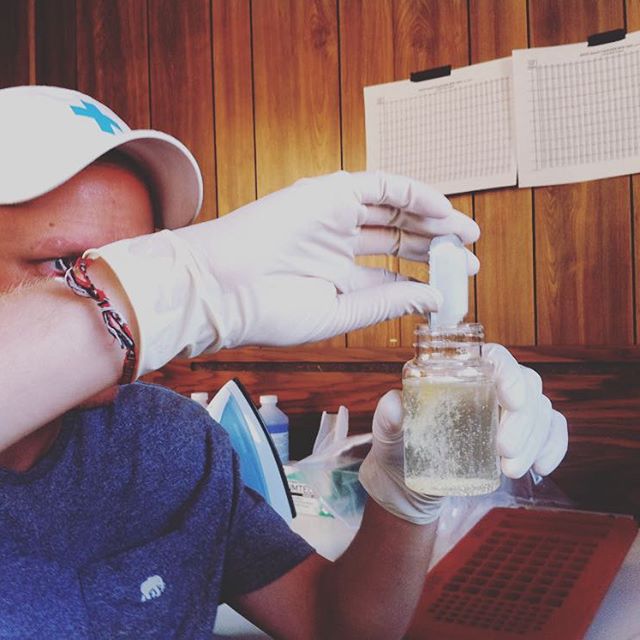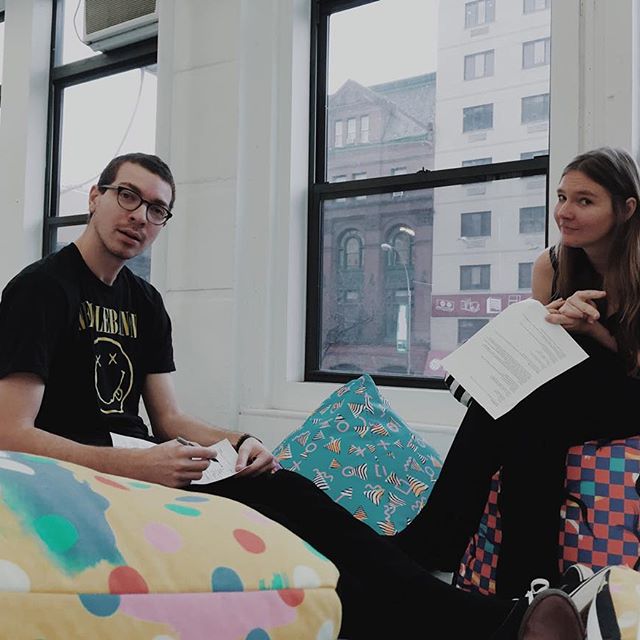+:+:+ GSAPP in the Spotlight +:+:+
Columbia University’s Graduate School of Architecture, Planning and Preservation (GSAPP) has long been considered a thought leader in its humanistic approach to urban space. The work of the school is situated “in the now,” which is to say that its focus is on the complexities of social, environmental and political issues. A long-time collaborator of the New Museum, GSAPP was early to support our program at NEW INC with their Studio-X lab joining as an inaugural anchor tenant. This year, however, GSAPP launched a new post-graduate incubator program that is even more aligned with the mission and activities of NEW INC.
The focus of the incubator leans towards experimentation and open exchange. Since they share a location within (or should we say — outside of) existing architectural systems, the goals of the incubator’s members are often similar. Take : (pronounced ‘Colon’) and +POOL (Pluspool). Two members of the incubator whose work, among other things, aims to subvert current hegemonic systems within architecture. +POOL addresses this through a physical project, while :(colon)’s is an intellectual exercise.
““What concerns us about the ‘big architectural project’ is not the thing itself, but the rhetoric or terms that constitute it.””
:(Colon) is a workshop and publication focused on critiquing architectural practice whose most recent volume, “The Political” was released across 7 episodes in 2015 and focuses on the way in which the systems of the architectural world and the projects that result from those systems are socially and politically charged. But politics isn’t relegated to a single issue of their publication. :(Colon) has a holistic commitment to their political values, which extend to the day-to-day processes of the team. The very structure of their project challenges the typical hierarchical environments of most architectural firms. They are eight individuals working on a single publication with a single editorial voice. There is no authority and no leader, which results in a democratic working process. According to team member George Louras:
"Where :(colon) is alternative is in its structure — we are eight people devoid of hierarchy and full of disagreement. We are trying to figure out a way for :(colon) to exist because it shouldn't."
:(Colon) working democratically through a single Google doc
:(Colon)’s democratic process is also enabled by technology. Their writing often stems from one open Google Doc that lets all eight members work on the same piece at once, something that elevates the standard to greater than the sum of the parts. This extends to a multiplicity of roles for each team member between issues — team members rotate between designing, writing, and curating for different issues. George continues, “the failure to get exactly what you want is about building a collective subjectivity.”
East River Bliss
On the physical front, +POOL’s project involves placing a water-filtering public pool in the East River of New York City. Like :(colon), +POOL’s goals are visible in the processes by which they work. This is a project for the people funded by the people (via Kickstarter Campaign).
Kara Meyer, +POOL’s Deputy Director, says that the project has become what it is today because of the community that has been supporting it. The ambition goes beyond the creation of a public space. In theory, selling the project to an investor with the intention of privatising the pool would make everything happen much more quickly. But selling the idea is simply not an option for +POOL, in keeping with the zero compromise policy that drives many of the GSAPP members. Kara says:
“Developers who are creating public space are not creating it because they don’t want to take advantage of that real estate, they’re creating it because it’s adding value and bettering their real estate. People buy around Central Park because there’s a beautiful public space, there so there’s value in creating public space. It’s not that they do it because of a sense of civic responsibility. We think of it as a civic responsibility but I think that people have different interests in it.”
Being socially and politically conscious in their projects does not make either of these GSAPP members unique in 2016. However, where these and the other projects in development at the incubator differ from say, a larger corporation utilizing a social cause as a marketing technique, is in the fact that they are socially conscious at a foundational level. Their very point of existence involves staying true to their ideals and proving that such idealistic projects are viable. For George from :(colon), the value system that decides what is good architecture is different to many of their architectural peers:
"I think we get enamored with a lot of the really flashy architecture projects and overlook the political and financial processes that enable them. Building buildings requires tons of money and is almost always in the service of generating more of it. Capital has co-opted much of the rhetoric and image making of architecture, but there are still moments you can push back--its a question of finding the right pressure points to shift the discourse and expose a lot of the false promises."
GSAPP incubator is creating tangible experiments enabling that push back, creating the forefront in a growing trend. And here in the NEW INC space, we’re excited to be supporting these GSAPP-led community-based projects, finding alternative means to inhabit a city with a real estate market as ruthless as New York’s.





